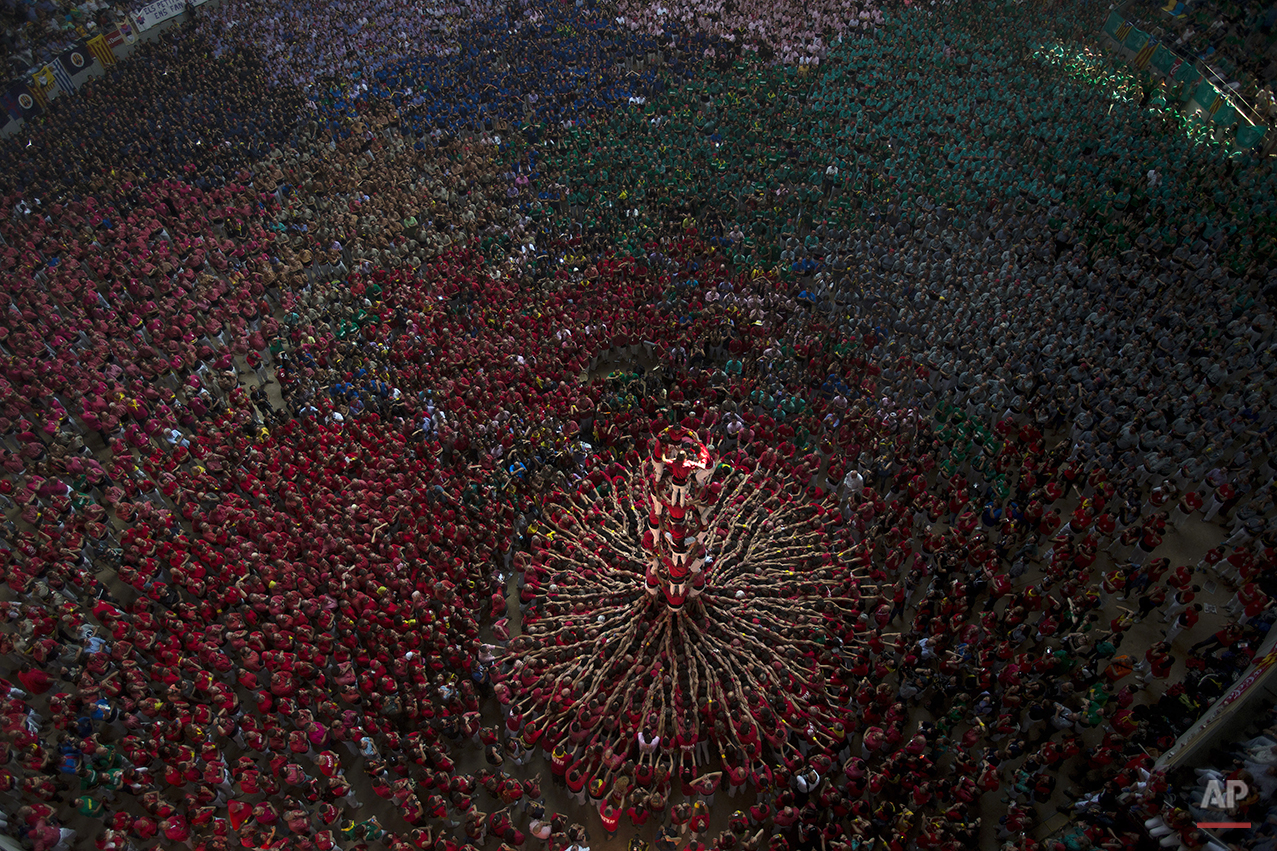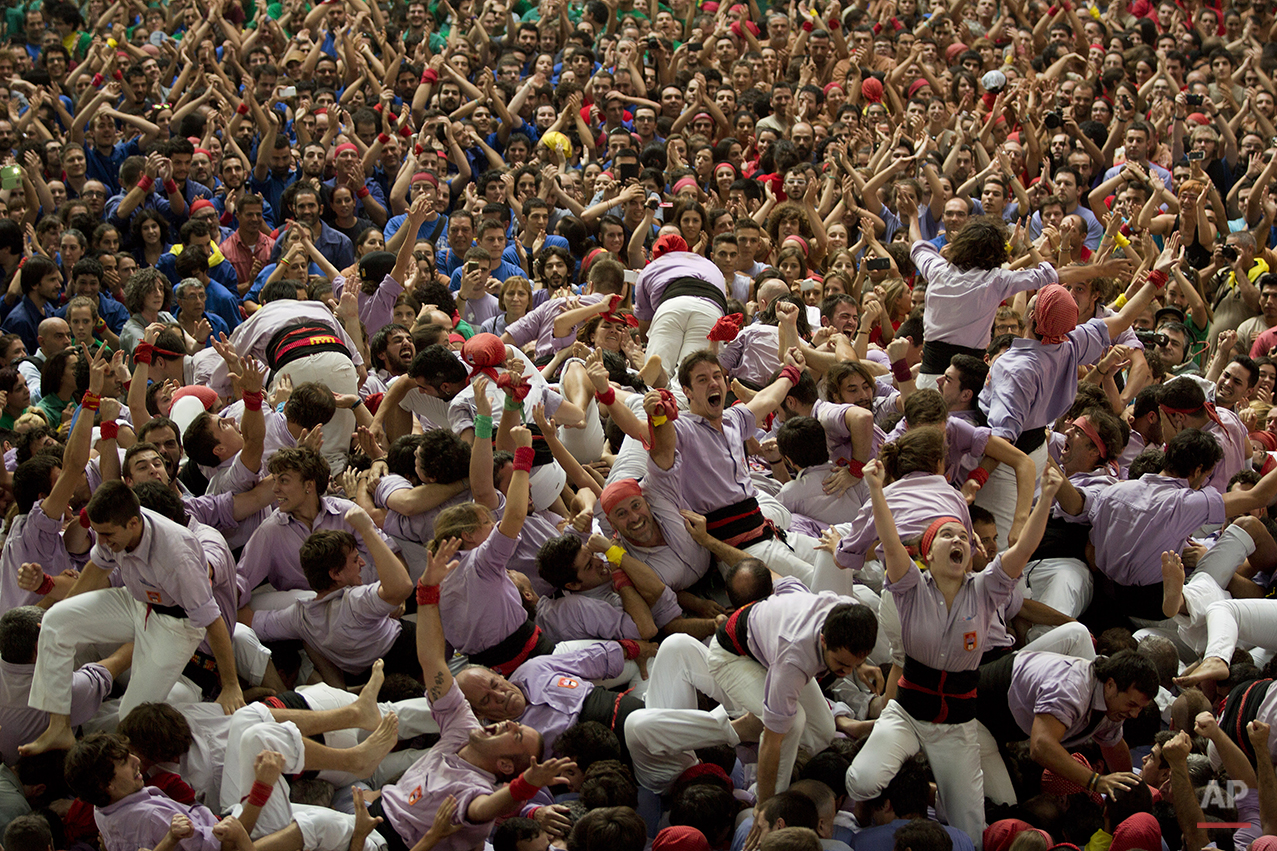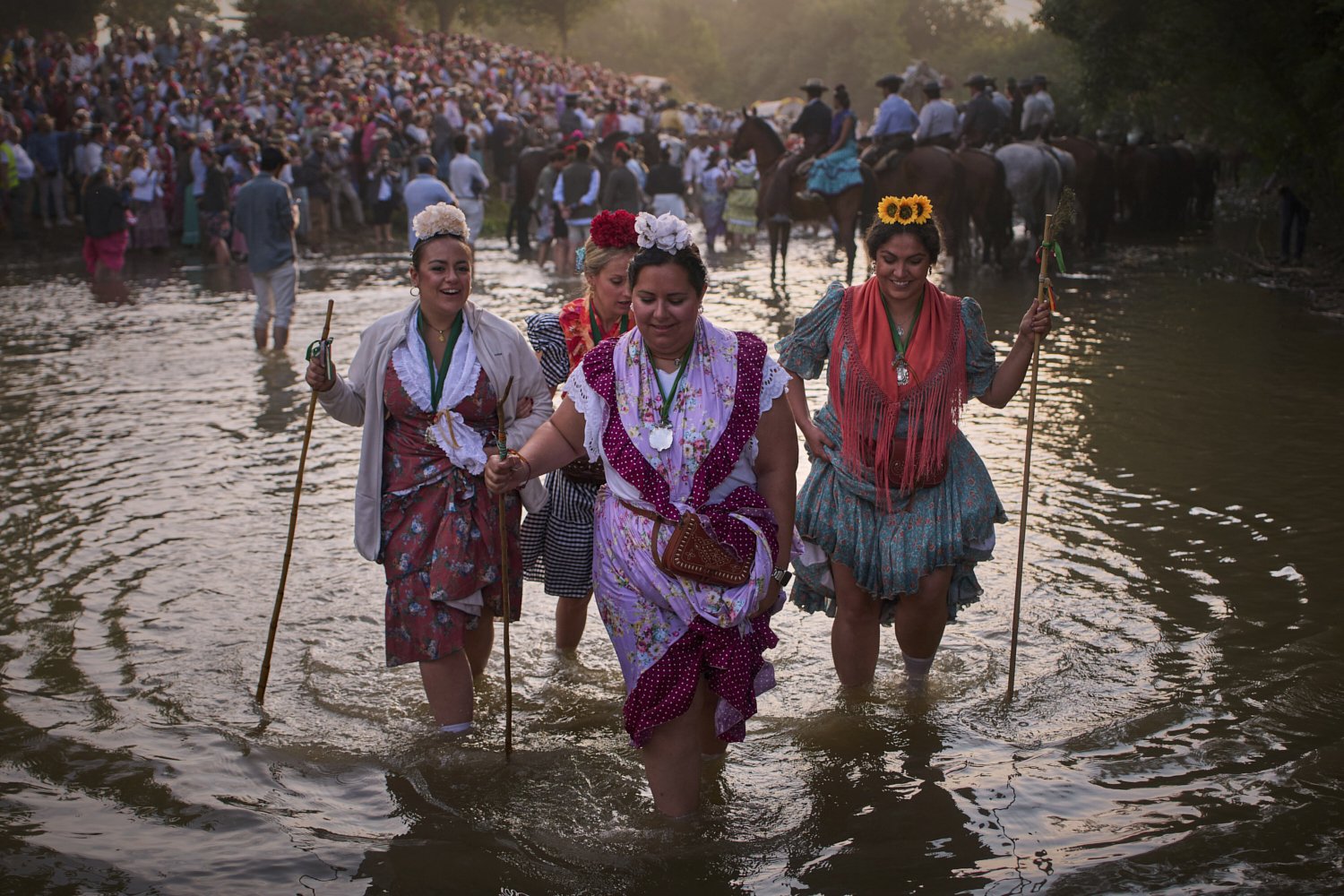Spain's human tower

Yesterday was the 25th Human Tower Competition in Tarragona, Spain. The tradition of building human towers or “castells” dates back to the 18th century and takes place during festivals in Catalonia, where “colles” or teams compete to build the tallest and most complicated towers.
Below is Associated Press photographer Emilio Morenatti’s coverage of this year’s Human Tower Competition in Spain.
Members of the Castellers Collas Jove Xiquets de Tarragona fall as they tried to complete their human tower during the 25th Human Tower Competition in Tarragona, Spain, on Sunday, Oct. 5, 2014. The tradition of building human towers or “castells” dates back to the 18th century and takes place during festivals in Catalonia, where “colles” or teams compete to build the tallest and most complicated towers. The structure of the “castells” varies depending on their complexity. A “castell” is considered completely successful when it is loaded and unloaded without falling apart. The highest “castell” in history was a 10 floor structure with 3 people in each floor. In 2010 “castells” were declared by UNESCO one of the Masterpieces of the Oral and Intangible Heritage of Humanity. (AP Photo/Emilio Morenatti)
Members of the Castellers de Tarragona work together making their human tower during the 25th Human Tower Competition in Tarragona, Spain, on Sunday, Oct. 5, 2014. (AP Photo/Emilio Morenatti)
Musicians of the Castellers Collas Jove Xiquets de Tarragona play their instruments as castellers try to complete their human tower during the 25th Human Tower Competition in Tarragona, Spain, on Sunday, Oct. 5, 2014. (AP Photo/Emilio Morenatti)
In this Saturday, Oct. 4, 2014 photo, a member of the Castellers de Poble Sec wears a worn out shirt after failing to complete their human tower during the 25th Human Tower Competition in Tarragona, Spain. (AP Photo/Emilio Morenatti)
In this Saturday, Oct. 4, 2014 photo, a wounded woman of the Castellers de Osona is held by teammates after falling while forming their human tower during the 25th Human Tower Competition in Tarragona, Spain. (AP Photo/Emilio Morenatti)
Members of the Castellers Joves Xiquets de Valls try to complete their human tower during the 25th Human Tower Competition in Tarragona, Spain, on Sunday, Oct. 5, 2014. (AP Photo/Emilio Morenatti)
In this Saturday, Oct. 4, 2014 photo, members of the Castellers de San Cugat react as their teammates complete their human tower during the 25th Human Tower Competition in Tarragona, Spain. (AP Photo/Emilio Morenatti)
Members of the Castellers de Villafranca celebrate after finishing their human tower during the 25th Human Tower Competition in Tarragona, Spain, on Sunday, Oct. 5, 2014. (AP Photo/Emilio Morenatti)
Members of the Castellers de la Vella celebrate after finishing their human tower during the 25th Human Tower Competition in Tarragona, Spain, on Sunday, Oct. 5, 2014. (AP Photo/Emilio Morenatti)
Members of the Castellers de Jove de Tarragona celebrate after finishing their human tower during the 25th Human Tower Competition in Tarragona, Spain, on Sunday, Oct. 5, 2014. (AP Photo/Emilio Morenatti)
Lead Image Caption: Members of the Castellers Joves Xiquets de Valls try to complete their human tower during the 25th Human Tower Competition in Tarragona, Spain, on Sunday, Oct. 5, 2014. The tradition of building human towers or “castells” dates back to the 18th century and takes place during festivals in Catalonia, where “colles” or teams compete to build the tallest and most complicated towers. The structure of the “castells” varies depending on their complexity. A “castell” is considered completely successful when it is loaded and unloaded without falling apart. The highest “castell” in history was a 10 floor structure with 3 people in each floor. In 2010 “castells” were declared by UNESCO one of the Masterpieces of the Oral and Intangible Heritage of Humanity. (AP Photo/Emilio Morenatti)
Spotlight is the blog of AP Images, the world’s largest collection of historical and contemporary photos. AP Images provides instant access to AP’s iconic photos and adds new content every minute of every day from every corner of the world, making it an essential source of photos and graphics for professional image buyers and commercial customers. Whether your needs are for editorial, commercial, or personal use, AP Images has the content and the expert sales team to fulfill your image requirements. Visit apimages.com to learn more.
Written content on this site is not created by the editorial department of AP, unless otherwise noted.
AP Images on Twitter | AP Images on Facebook | AP Images on Google+















